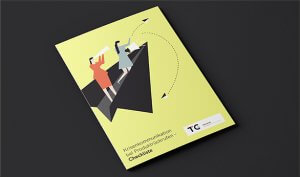Product Recall Guide
Our guide to product recalls answers key questions on the subject of product recalls.
You will find further information:
- in the German book “Krisenfall Produktrückrufe” by Tina Glasl and Prof. Dr. Thomas Klindt
(Boorberg Publishing House) - Ordnungswidrigkeiten- und Strafverfahren, ebook (link to ebook) by Prof. Dr.
Alfred Hagen Meyer
- What is a recall?
- What is the definition?
- What is the process of a product recall?
- Which legal regulations are relevant?
- Is there an obligation to recall products?
- How long are recall campaigns valid?
- How can companies prepare for a recall?
- What does a recall cost?
- Who bears the costs for recalls?
- What are known examples of recalls?
What is a recall?
Recalls are actions taken by responsible food business operators (usually manufacturers or distributors) to inform consumers that a portion of food does not meet food safety requirements. They are implemented for reasons of preventive consumer protection.
In addition, there are a multitude more reasons today that can lead companies to have to address a food or product-related crisis: Critical test assessments, negative reports from consumers who organise and form themselves online on the internet or also crises initiated by the media, in which not infrequently individual, negative consumer opinions are postulated towards a brand or a manufacturer and its quality management. These cases also require a targeted solution. Many other building blocks of legal and communicative measures are now part of the portfolio of successful crisis management in the case of recalls.
What is the definition?
The recall is a procedure to reduce or eliminate hazards caused by placing unsafe products on the market. For example, a portion of food is unsafe if it is harmful to health or unsuitable for human consumption. So this is always about protecting the safety and health of people. The recall includes a communication programme with details of the exact reason for the recall, information on possible health effects, a description of the process and service instructions.
health effects, description of the procedure and service information (e.g. product illustration, description of distribution channels) for consumers. In addition, suitable and targeted communication measures are developed to inform and warn those affected (e.g. press releases, notices in shops, etc.).
What is the process of a product recall?
In the event of a public recall, consumers must be effectively informed of the hazard situation in order to protect the safety and health of the affected customers/consumers and to prevent further distribution of the affected products.
How high the risk situation is to be assessed and what further measures result from this is subject to a legal assessment of the respective case. From a communication point of view, the development of a customer-oriented problem solution and communication strategy is crucial. Legal and communicative procedures must be closely coordinated and the facts must be communicated to the client in a plausible and solution-oriented manner. In this way, it is possible that well-handled product recalls do not damage the image of the company or the brand, but even have a confidence-building effect on the customers.
Which legal regulations are relevant?
There is a multitude of European and German laws for food. The spectrum of specific regulations is very wide. Regulation (EC) No. 178/2002 of 28 January 2002 laying down the general principles and requirements of food law is particularly relevant for food recalls.
Is there an obligation to recall products?
A large number of European and German legislative projects from the past decades are motivated from the point of view of consumer protection and have brought the possibility of official recall orders in Germany and the necessity of in-house recall management very clearly to the fore. This includes, for example, the general obligation for product monitoring/traceability as well as the voluntary official notification in case of product problems.
Example food: Art. 19 Regulation (EC) No. 178/2002 obliges food business operators to withdraw from the market and/or recall food that is unsafe.
In addition, the following applies: If it is determined through the company’s own investigations that a food is unsafe (e.g. due to a health hazard) and the decision is nevertheless made not to carry out a recall, there is a risk of criminal proceedings.
How long are recall campaigns valid?
Product recalls are not limited in time. The duration of a retail display depends on the individual case but is usually at least two weeks (over 2 weekends).
How can companies prepare for a recall?
Especially the communication in a recall can be well prepared: Having identified trouble spots and thought through crisis scenarios in advance, being prepared for an emergency, having prepared all structural processes and contents ensures quick and proactive action and creates the basis for successful communication management.
What does a recall cost?
The cost of a recall depends on many factors. How many countries or markets are affected? How extensive is the communication programme? Are recall notices displayed in print media? etc.
Who bears the costs for recalls?
Since the duty to recall falls on the responsible food business operator/manufacturer, the latter must also bear the costs, especially manufacturers vis-à-vis distributors.
What are known examples of recalls?
In 2003, the EU introduced the RAPEX rapid alert system for all dangerous consumer products and RASFF (Rapid Alert System Food and Feed) for food, feed and food contact materials.
Current recalls are published on www.produktrueckrufe.de. In addition, current food recalls are published on www.lebensmittelwarnung.de.
